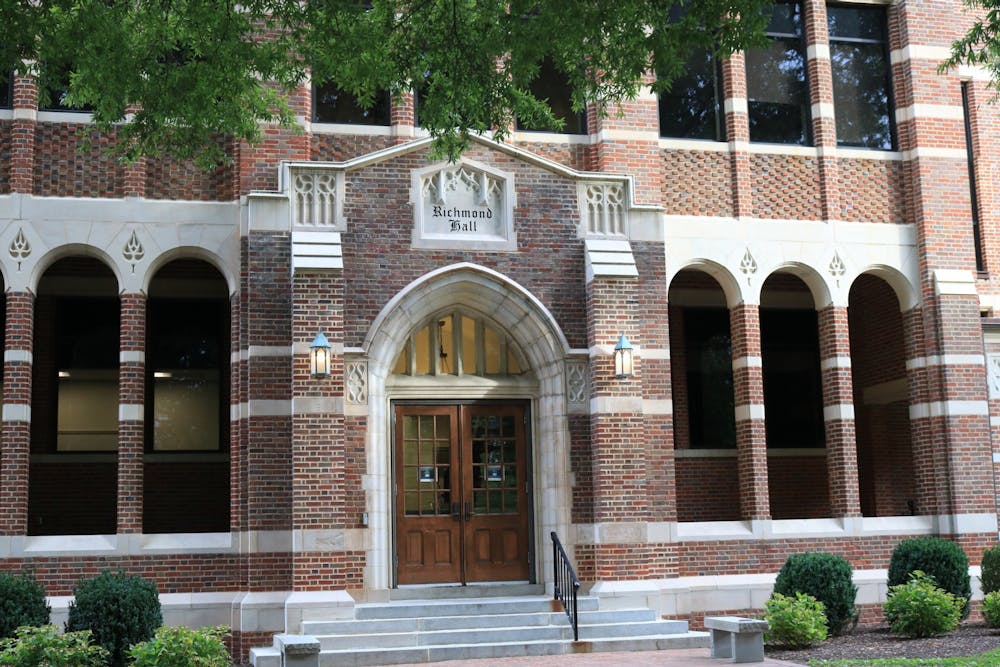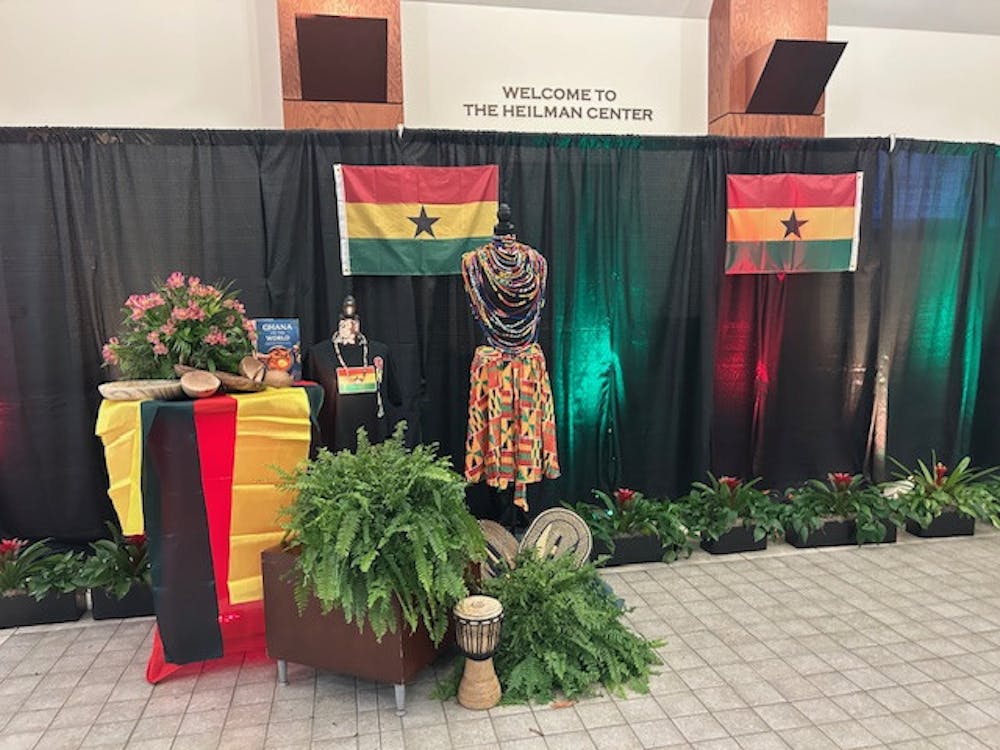The University of Richmond welcomed an American Sign Language course into the linguistics program for the first time this semester.
LING 297-01, Selected Topics: American Sign Language, is co-taught by professors Reba Poole and Kaye Wise. Poole, who is entirely deaf and mute, signs during class, while Wise interprets.
The team makes decisions about curriculum and grading rubrics together, but Wise said that Poole would get the final say because she had been a part of the Deaf community her entire life.
Poole grew up around deaf people all her life, and went to a deaf state school in Virginia, she said.
“I grew up associating with Deaf people all my life so teaching it, I really enjoy it, and to be able to continue that tradition all these years,” Poole said.
Each student has different reasons for wanting to learn ASL, and Poole said that she wanted to broaden their perspective of the Deaf community.
“I’m trying to work with each person so that they feel comfortable with deaf people and they're curious,” Poole said. “They want to learn.”
The class started as a no-credit course in the School of Professional and Continuing Studies in 2017, Wise said. Poole and Wise would teach the class to interested students as a team or individually as ASL Language Partners in the Global Studio.
The course became more and more popular, Wise said, and after a proposal was introduced by the linguistics program, it became a for-credit course for undergraduate students.
It was hard to get a measure on the exact interest in the course, Linguistics Program Coordinator Thomas Bonfiglio said. On the morning of class registration for the fall semester, he found his answer as the class reached its 15-student capacity almost immediately.
"We were totally floored," Bonfiglio said. "I checked my email at 7:20 a.m., and there was an email from a student at 7:05 a.m. saying, 'Can you give me an override,' and when I asked why, he said it closed out in a few minutes."
Despite the challenges of holding a course with no precedent at UR, the students bring enthusiasm to every class, Wise said.
Enjoy what you're reading?
Signup for our newsletter
"They're beginning to start putting sentences together, and they're beginning to start communicating in the language,” Wise said. “And it's exciting. It's fun to see another generation have the passion for the language."
Noah Yuro, a fifth-year student on the cross country team, said that he had chosen ASL as the one course he would take until he graduated in December after finishing out the season.
"I'm a French major with minors in Italian, linguistics and anthropology," Yuro said, "So my whole college experience has been geared toward kind of communicating and connecting with people from different cultures that I deem different from my own."
Yuro added that the class was teaching him not to have biases toward Deaf culture.
"From the outside, it's easy to kind of catch judgment and feel sorry for them," Yuro said. "But in their eyes, they're living the best life they have. And it's no different than you and I living our lives."
ASL can earn students a general elective credit, but it does not count toward UR’s Communication-Second Language general education requirement, according to the registrar’s webpage. To do so, the course would have to go through a lengthy process by the academic council.
Global Studio Director Michael Marsh-Soloway said that the process for the ASL course to become a COM2-compatible class would take time. He said he hoped the course would be extended to a full program with appropriate accreditation and approval through the academic council, but the process would take years.
Before 2017, there was no formal language in UR’s course catalogue that allowed ASL to fulfill the second language requirement. The catalogue description of the COM2 requirement, according to the registrar's webpage at the time, used "foreign language" and “classical languages" to describe courses that would fulfill the requirement.
"[Academic disabilities and accommodations] proposed the removal of the word 'foreign,' which is, quite frankly, an inaccurate and useless expression," Sharon G. Feldman, professor of Spanish and Catalan studies and the William Judson Gaines chair in modern foreign languages, wrote in a Sept. 14 email statement.
Instead, the addition of the term “second language” captures all of the connotations of inclusivity that UR is trying to achieve, Feldman said, including that of ASL.
"The fact that we were able to get a new course on the catalog during the pandemic was sort of a small challenge and it was a feat in and of itself," Marsh-Soloway said, "But we are starting incrementally."
Contact visual staff member Madyson Fitzgerald at madyson.fitzgerald@richmond.edu.
Support independent student media
You can make a tax-deductible donation by clicking the button below, which takes you to our secure PayPal account. The page is set up to receive contributions in whatever amount you designate. We look forward to using the money we raise to further our mission of providing honest and accurate information to students, faculty, staff, alumni and others in the general public.
Donate Now



